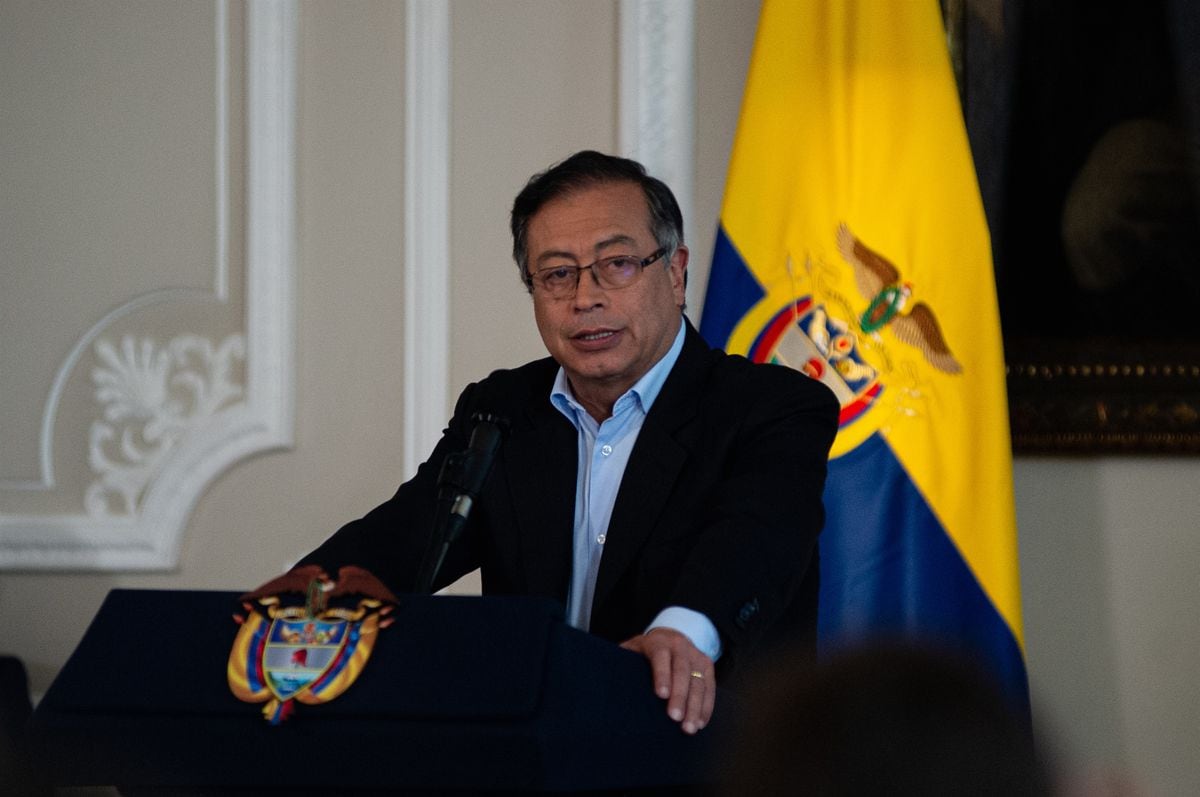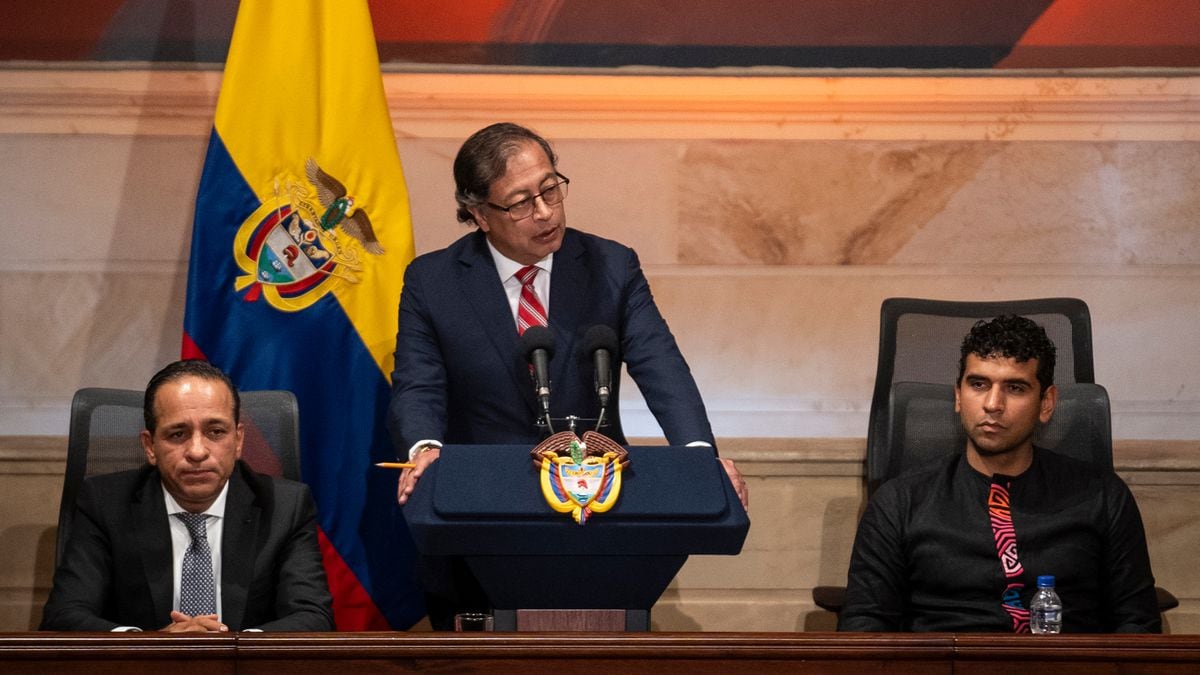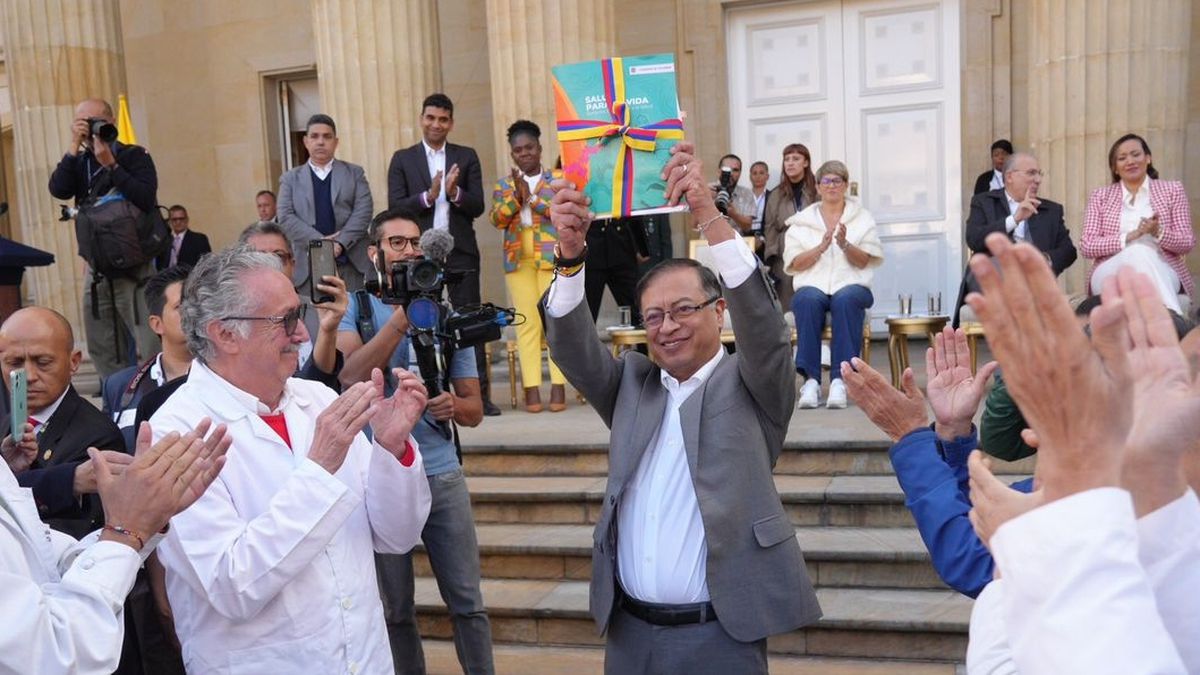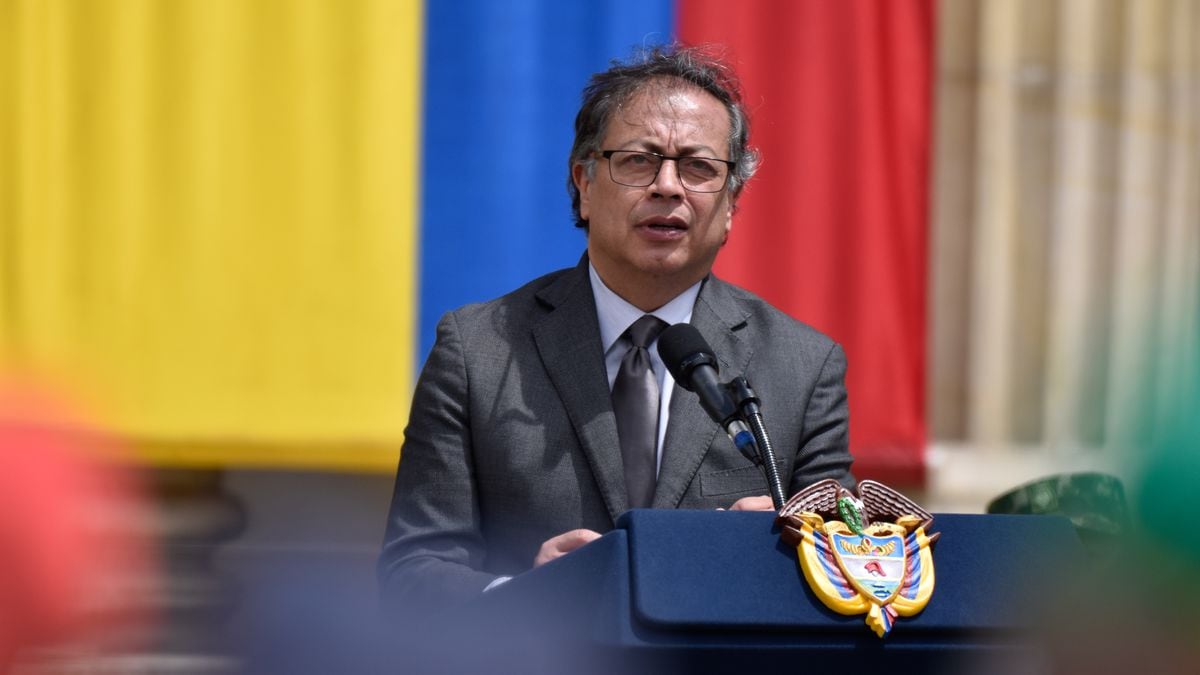The president of Colombia, Gustavo Petro, on January 4, 2023.CHEPA BELTRAN / ZUMA PRESS / CONTACTOPHOTO
The decision of President Gustavo Petro to resume the administration and control of home public services, such as electricity or water, received a legal challenge from one of them.
In addition to this legal debate, the announcement has opened others about its possible consequences on the economy and the functioning of public services, which in Colombia have ghosts such as rationing in the early 1990s or electricity problems in the Caribbean.
The president's announcement, which he made on Thursday night, had a clear background.
In September he announced his intention to resume those powers, which the Constitutional Court has determined belong to the president but delegates to the commissions.
He did it, neither more nor less, in the congress of the union of companies that provide public services.
"The regulatory commissions are to regulate the markets based on universal law, not to affirm processes of financial speculation, as they have done up to now," he said then.
At that time there was particular tension because the increases in energy rates, which totaled more than 22% so far in 2022, pushed inflation up.
But the announcement that the solution was to concentrate power in Colombia's most powerful official worried those who fear it would limit the autonomy of key entities, such as the board of directors of Banco de la República.
On the other hand, he also recalled that just before leaving office, Iván Duque appointed two members of the Energy and Gas Regulation Commission (CREG), as a way of ensuring a counterweight to his successor.
A month later, his Minister of Mines and Energy led an agreement with the companies and the CREG to change the formula to define the rates and seek to lower them, which calmed the waters.
In these four months since then, Petro had not referred directly to the matter again and the tension dropped.
But this Wednesday the president again referred to energy rates on Twitter, criticizing the current formula and showing what an alternative would look like:
High electricity rates without consulting the opportunity cost of water, today very low due to winter, goes against the same energy transition
— Gustavo Petro (@petrogustavo) January 26, 2023
That same day, the Superintendence of Public Services, the public entity in charge of monitoring companies in the sector, sent him a legal notice: it told him that, in his opinion, he can assume those functions or at least some.
On this point there seems to be a consensus, since the public services law and the Constitution say that the commissions are in charge of some functions if the president delegates that function to them.
“Legally, I think there is no further discussion.
The president can assume the functions that were delegated to the regulation commissions”, explains Julián López Murcia, an expert in regulation and former delegate superintendent for aqueduct and sewerage.
The three CREG commissioners who do not belong to the Government (there are five in total; the other two are delegates from the Ministry of Mines and the National Planning Department), however, believe that this does not include all functions.
On Friday afternoon, they reacted to the presidential announcement with a public statement that, with legal arguments, maintains that this commission "fulfills the functions assigned to it by law."
In this line, the lawyer and economist Pablo Márquez, who was commissioner of the Communications Regulation Commission, explains that in his opinion it is clear that the president can resume delegated functions, but it is not clear which exactly are delegated and which are proper to him. the commissions, created by the laws of public services.
In short, as so many other times in Colombia, the political debate ends or goes through a discussion between lawyers.
But it does not stop there, since Petro's decision is essentially political.
He himself has explained it based on the suspicion that the regulatory commissions have defined the rates in favor of private companies and not of users.
“This collection of energy rates based on purely speculative charges goes against national development and only produces hunger and poverty growth.
A government of change cannot allow users to be subjugated in this way, ”he says on Twitter.
Precisely similar arguments appear in the concept of the Superintendency.
The document, signed by the superintendent Dagoberto Quiroga (appointed in that position by Petro), does not say that it responds to a query from the president.
Instead, it explains the reasons for giving the concept as follows: "to seek solutions to advance in the change, in the regulation of the tariffs of residential public services and the need for us to advance in the reduction of the tariff that afflicts users in in relation to the growing dominant position of the companies providing public services and in the face of the differences we have had with the regulatory commissions”.
In short, the Superintendency clarifies that its concept seeks for the Government to reduce energy rates - and possibly other household public services such as water, gas or garbage.
And that it does so because the regulatory commissions have not accepted the changes that it has proposed for that purpose.
The system that Colombia created after the 1991 Constitution, and which includes the creation of commissions, indicates that the rates to the public must be sufficient for companies to recover their costs.
Added to the cross-subsidy system (through the strata system, households located in better physical environments pay a premium so that those in more precarious environments pay less), thus the companies have their sustainability assured.
This, plus competition when possible, seeks to avoid what happened in the 80s of the 20th century: public monopolies that required budget subsidies, often did not have enough money to invest and were used as bureaucratic strongholds by local politicians. .
This produced a rapid increase in the coverage of many of them: the aqueduct went from covering 59.45% of homes in 1985 to 76.32% in 2005, for example.
Moving the decision on rates from an organization with five people to a single one, which also has a clear political incentive, can be risky when it comes to reviewing the sustainability of the system.
"A decision that is political can be a historic setback in public services," said Camilo Sánchez, director of Andesco, the business association.
"Politics has other types of incentives, such as raising favorability ratings," Lorenzo Villegas, an expert lawyer in regulation and former communications commissioner, told this newspaper.
“Passing the tariff policy to the president is something that Petro can do but it seems to me that it is a bad idea”, he concludes.
And that debate, that of who should determine the rates, is one that grows in parallel to the legal one.
The implications are not yet clear as they cannot be determined until they are finalized in decisions on the rates or in legal documents on how the president would set them.
However, the announcement is already having an effect as it creates uncertainty among private companies, which must invest to maintain or improve their services.
"Today you, as a businessman, say that you do not invest more until you are clear about it," explains Márquez, the former communications commissioner.
Subscribe here
to the EL PAÍS newsletter on Colombia and receive all the latest information on the country.




/cloudfront-eu-central-1.images.arcpublishing.com/prisa/RYAE4R2YX5G7LGEJQ74SXZI47A.jpg)




